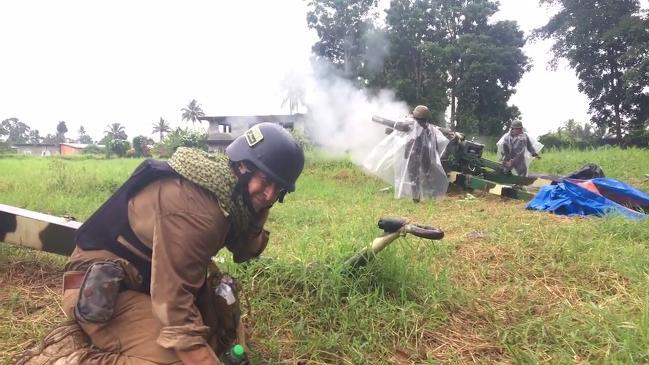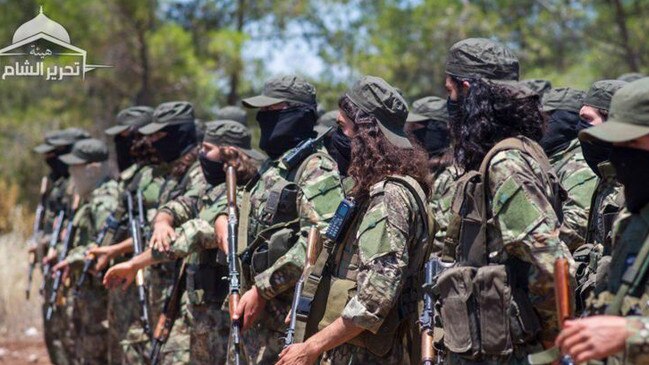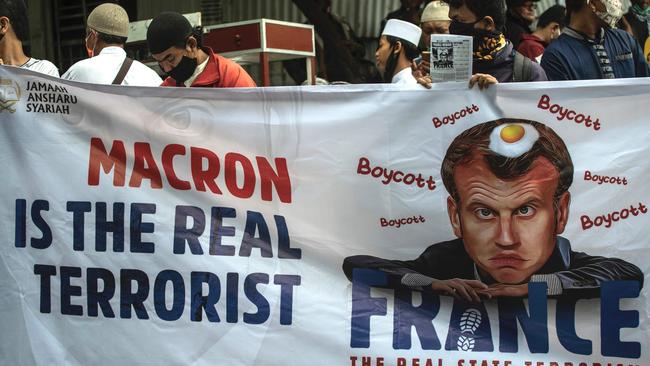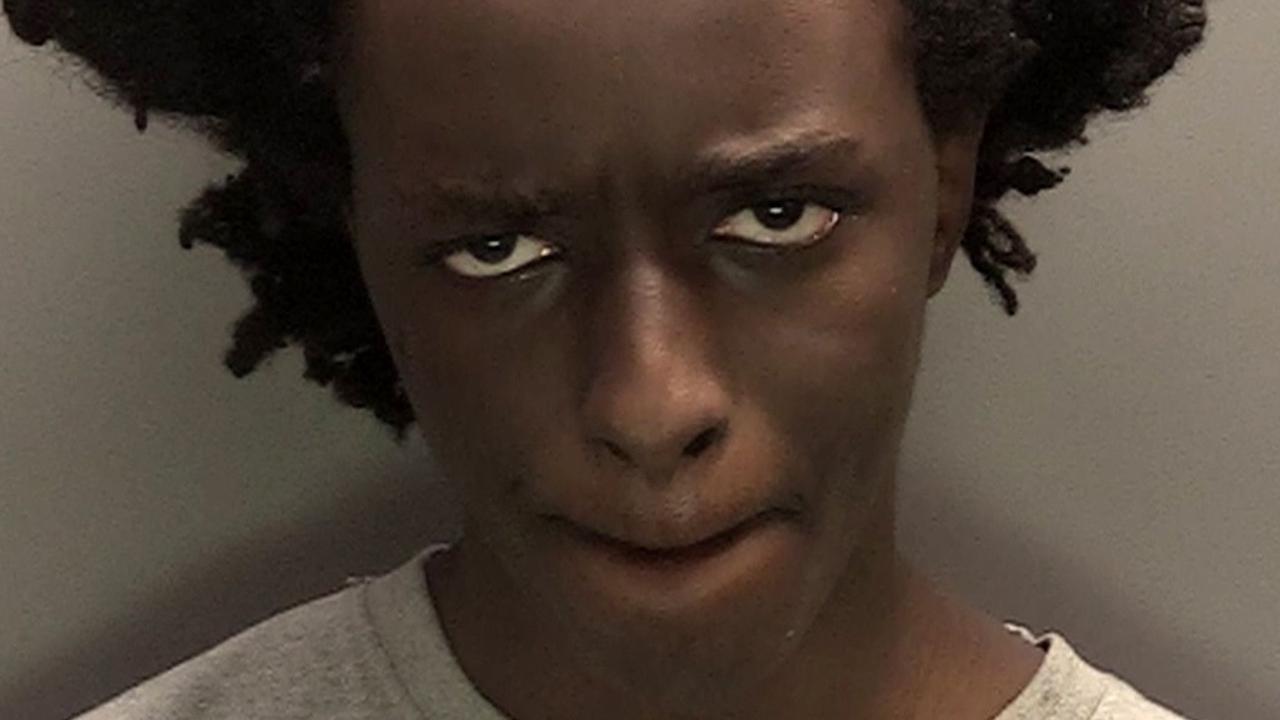Top terror expert warns Australians of an increased threat of attack at Christmas
One of the world’s foremost terrorism experts has eerily warned of an increased threat of an attack in Australia this Christmas.

Crime in Focus
Don't miss out on the headlines from Crime in Focus. Followed categories will be added to My News.
The children of the terrorists behind the Bali bombings and other regional attacks are at risk of recreating the sins of their fathers, as authorities warn of a significant re-emergence of extremism and “intergenerational” mindsets.
And one of the world’s foremost terrorism experts has eerily warned the attacks in Europe will see momentum carry to South East Asia with an attack in Australia likely this Christmas time.
Part of the issue has been COVID-19 creating the perfect conditions for terror groups to flourish, particularly in South East Asia, as the region this week officially plunged into poverty, reversing decades of economic progress with mass job losses, school closures and vulnerability.

Indonesian authorities have advised regional security and intelligence allies including Australia that Islamic State and al-Qaeda had well and truly transformed in 2020 into decentralised outfits to “bind” followers and splinter groups in the region.
Al-Qaeda-linked Jemaah Islamiah (JI), which was behind the 2002 Bali bombing that killed 202 people including 88 Australians, was found to have “regenerated” in Indonesia, Malaysia and the Philippines, spurred by the return of 70 battle-hardened jihadists who fought in Syria and Iraq fighting alongside al-Qaeda linked militants.
Many are part of recently created grouping Neo-JI, a young generation of militants.
News Corp Australia has been told JI continues to send operatives overseas to al-Qaeda affiliates Hay’at Tahrir al-Sham (HTS) and Huras al-Din in Syria and Afghanistan for combat experience, and while the group in Indonesia had been dormant for the last decade, intelligence points to them having been actively recruiting members, forming a paramilitary wing and raising funds, including through palm oil plantations, cattle farms and dozens of religious schools, particularly in Java.

Some JI members are also known to have joined the pro-Islamic State group in Indonesia Jamaah Ansharud Daulah (JAD) which works closely with groups in Malaysia and the Philippines and which were linked to last year’s deadly cathedral bombing in Jolo, Philippines, and assassination attempt on Indonesia security minister Wiranto in October that year.
Australian intelligence sources confirmed that with IS and al-Qaeda support, they had become “more sophisticated, adaptable and organised” and are returning to operational capabilities but the key fear is the generation that has followed the Bali bombers.
Between 100 and 150 people jailed for terrorism in Indonesia are released each year, having served their time but many remain extremist and re-join terror kin.
IS-linked groups particularly have now deemed it important for family to engage in jihad together so they remain together in the afterlife and JI specifically has ordered families into i’dad programs, essential preparation period for jihad.

Intelligence also points to Neo-JI members engaging in fa’i, which literally means seizing from non-Muslims in time of war, conducting armed robberies of rich Indonesian Chinese businessmen to fund friends and family in jail and terror strike plotting.
The last significant attack attributed to a former JI faction was the 2009 J.W. Marriott and Ritz Carlton hotel bombings in Jakarta, although in March this year a bomb “bunker” was found by authorities with a JI colleague confessing they were bombs left by Dulmatin, the mastermind behind the Bali bombings who was killed by police in 2010, that they were copying to mass produce.
JI has “a few hundred” fighters but at least 3000 supporters that ascribe to their ideological goal of creating an Islamic caliphate.

Some of those jailed for links to the Bali bomb attacks had already been re-jailed for recidivist terror-related offences but they, on average, only received three to four-year sentences and were also again now being released.
COVID-19, a pandemic some Muslim extremists see as nature’s revenge on the west, has slowed attacks through lockdowns and mass gathering bans but fuelled poverty and desperation and the need for social networks.
“I think it is very, very important for governments to understand there is now a shift and we have to take this into consideration and react,” said one of South East Asia’s leading experts on international terrorism, Dr Rohan Gunaratna.


“Since March of this year we have seen a decline in the number of terror attacks but a dramatic increase of the footprint of these groups. Radicalisation has peaked during this period because many of these groups have been active online trying to co-opt people. Significant expansion of these groups in the online space.”
He said the various groups operating now should be a significant concern, particularly those related to al-Qaeda.
“The dominant group is no longer Islamic State although Islamic State still continues to mount the most graphic attacks, but the group that is stronger, more capable and more strategic is al-Qaeda and its affiliates. The greatest threat is if al-Qaeda and Islamic State unite.”

Professor Gunaratna recently spent several days interviewing the man dubbed Indonesia’s most dangerous terrorist, the radical cleric Aman Abdurrahman, who was sentenced to death in June 2018 for a spate of attacks.
He was already in jail when he co-ordinated a string of other deadly killings using JAD-linked families, including on a church, bus terminal and a bomb attack on Jakarta Starbucks.
The JAD founder also spread radicalism among fellow inmates.
Dr Gunaratna said JAD were unrepentant and more lethal than previous groups and warned there would be attacks in Asia including Australia during the Christian holiday period.
“Terrorism will peak and you will see in this December because of the spike in France and Austria, the threat cascade to South East Asia during the Christmas period, you will see attacks in the region including Australia and it will go into the New Year period,” he said.

He said the Australian Federal Police, ASIO, ASIS and police from Victoria and NSW had been active in Indonesia and post-Bali bombings built a huge counter terrorism capacity.
But he said that needed now to extend to the Philippines which was the centre of gravity now for regional terror threats.
He said there were extensive migration links between Australia and the Philippines that justified capacity building, particularly in combating online radicalisation.
“The future of fighting terrorism is working together cooptation, corroboration and partnership,” he said.
“Australian counter terrorism framework and practice is 10 to 20 years ahead of the other countries in this region and they can afford to share some of their capabilities.”

Indonesia’s Centre for Deradicalisation and Deradicalisation Studies (PAKAR) said while the West was no longer a primary target for extreme Islamists, instead targeting their own government and institutions, actions and remarks perceived as anti-Muslim such as made by French President Emmanuel Macron about a Muhammad cartoon, had impact.
The Indonesian Government also does not adequately address radicalism particularly through social media.
“Like the French issue and Emmanuel Macron’s statement was seen as blasphemous, so there has been talk about attacking French interests in Indonesia, the fear is sensible but not likely – but statements or an invasion or action by the West could attract an attack,” PAKAR senior researcher Muh Taufiqurrohman said.
“For now you can rest assure you are OK, for now.”

Australian security expert Deakin University Professor Greg Barton said JAD was bringing splinter groups together and a vast majority of anyone arrested for terror offences since Bali had been released having served sentences.
How many of their children had been indoctrinated was unknown.
“There is always a danger an element of the detainee population going back into action, it is intergenerational, these people have close family ties, they often inter marry, and indoctrinate their children in terms of Darul Islam (early Islamic extremism in Indonesia). We have now got the fourth generation from this group since the 1950s,” he said.
He added “COVID-19 won’t be the trigger, it is an accelerant, a stress factor, so if we saw a sudden flare up it will be because of international connections. We know the global al-Qaeda affiliate network is numerically stronger than it has ever been before.”
ASIO’s 2020 annual report concluded IS was plotting opportunistic attacks in South East Asia with “Australia specifically identified as a target”.
“Islamic extremists continue to disseminate propaganda designed to radicalise, recruit, instruct on and inspire terrorist attacks, including in Australia,” it concluded.
MORE NEWS
PM: All borders to open by Christmas, except WA
COVID cases in Trump’s inner circle grow
Aussie crackdown on China’s TikTok
'Regrettable’: VC hero reacts to war crimes report
Originally published as Top terror expert warns Australians of an increased threat of attack at Christmas




